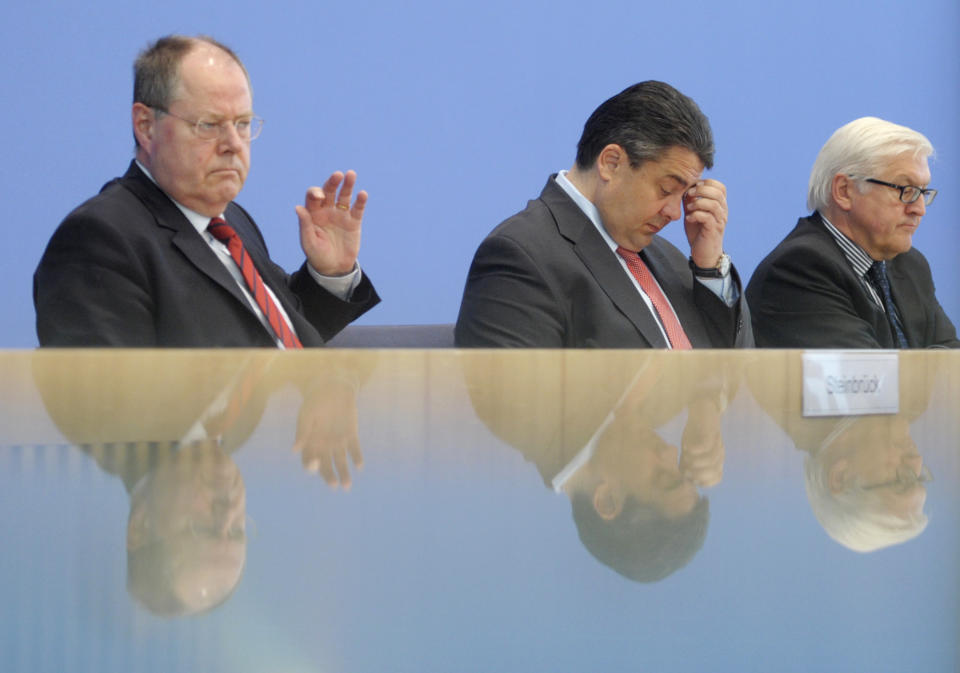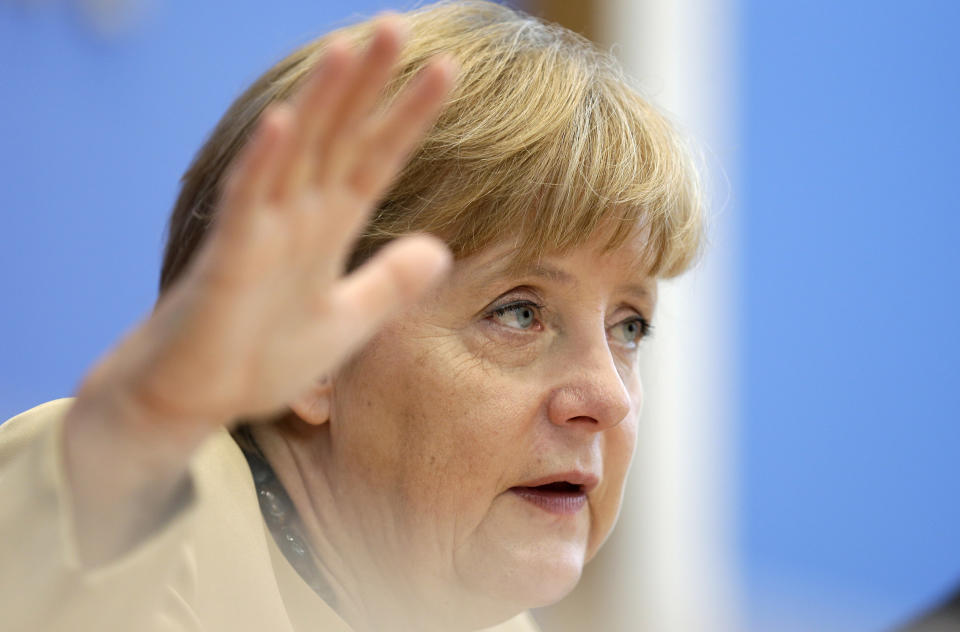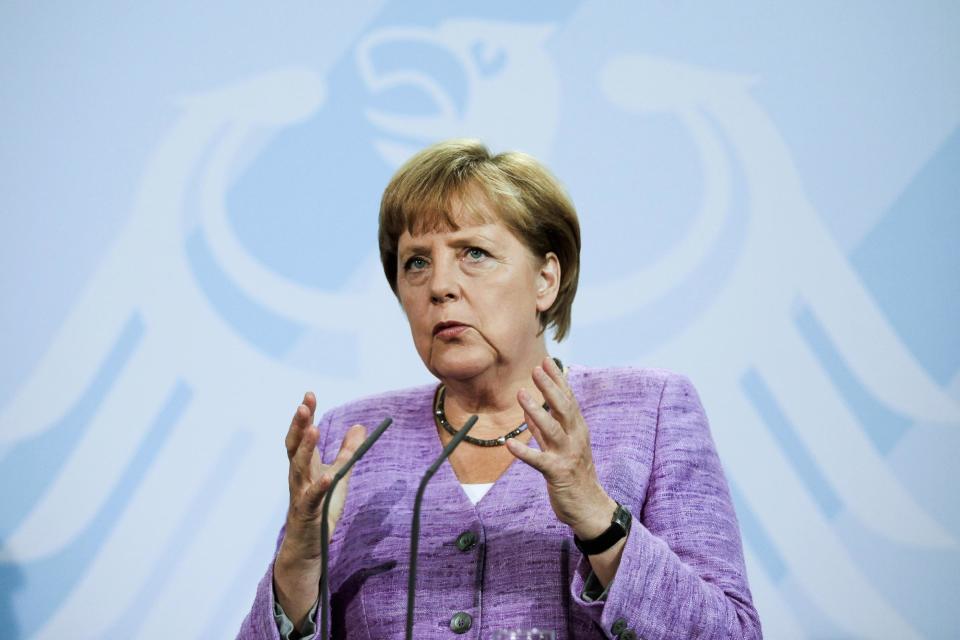German opposition struggles to unsettle Merkel
BERLIN (AP) — Germany's main opposition party is itching to end Angela Merkel's 7-year grip on power — but with elections a year away, there is no challenger in place and little sign of a winning strategy.
Recently, the center-left Social Democrats' leader declared that elections expected next September must be about "taming the banking and financial sector," and issued a proposal to boost pensions for low earners.
But his party keeps being asked one question: Who will challenge Merkel to lead Europe's biggest economy? The choice could be months away. Meantime, Merkel enjoys stellar popularity ratings and polls suggest she would trounce any of her potential challengers.
One of the main sources of Merkel's popularity, her handling of the eurozone debt crisis, is making it hard for the opposition to land blows.
The Social Democrats and their allies, the Greens, criticize Merkel for what they decry as a too-little, too-late response — before invariably supporting her plans in Parliament.
The Social Democrats have given themselves until the new year to choose between a trio of potential challengers — all ministers from Merkel's 2005-9 first term, when she governed in a left-right "grand coalition" with the party of predecessor Gerhard Schroeder.
"We don't just want to be back in government in 2013 — we want to shape this country, and not as the junior partner in a 'grand coalition,'" one of the trio, former Foreign Minister Frank-Walter Steinmeier, said recently.
Still, neither he nor his rivals — ex-Finance Minister Peer Steinbrueck and the party leader, former Environment Minister Sigmar Gabriel — have a winning electoral record.
Steinmeier was Merkel's challenger in 2009, when his party slumped to a record-low 23 percent of the vote after 11 years in government, sunk by traditional supporters' fatigue with economic reforms. Steinbrueck and Gabriel were once state governors but lost their regions to Merkel's conservatives.
The three-way contest is getting stale, and the Social Democrats are struggling to break the 30 percent mark in polls — leaving them well short of Merkel's conservative Christian Democratic Union.
Surveys show no majority for their hoped-for coalition with the Greens, themselves distracted by a membership ballot on who should lead their campaign.
The idea of keeping three candidates in play "was to confront the chancellor with three men who can do better than her," the daily Sueddeutsche Zeitung commented in an editorial this week. Instead, the result is that "even these three men together aren't managing to put Merkel on the spot."
Merkel's own center-right government has become notorious for infighting and domestic policy paralysis. But with the opposition even more dysfunctional, she appears well positioned to embark next year on a third four-year term. That would allow her to follow the Netherlands' Mark Rutte in avoiding the fate of a succession of European leaders felled during the debt crisis.
And her European counterparts shouldn't hope too hard for a radical change of approach from Germany.
The main opposition parties don't share Merkel's aversion to pooling European debt, but haven't been able to force her into doing that in exchange for their support on rescue measures.
Manfred Guellner, the head of the Forsa poll agency, points to the nickname "Mutti," or "Mom," that German media sometimes use for Merkel to pinpoint her appeal. He says it captures her ability "to suggest to people that she takes care of their worries," particularly in the crisis.
Perceptions that she's defended the country's interests and led a sensible response to a bewildering mess have helped keep her popularity ratings high. Absent an unexpected euro meltdown over the coming months, that's a big advantage for the coming campaign.
A poll by Guellner's agency published Wednesday found that Merkel would beat the sharp-tongued Steinbrueck, who helped pilot Germany through the 2008 financial crisis, or the sober, businesslike Steinmeier by more than 20 points in a head-to-head vote, and Gabriel would perform worse.
The survey of 2,502 gave a margin of error of plus or minus 2.5 points.
With traditional center-right and center-left alliances short of a majority, there's a good chance that, come the end of 2013, the Social Democrats could find themselves with little choice but to serve Merkel in Cabinet again.
Merkel said this week that "the common ground ... is the greatest" between her conservatives and the pro-market Free Democrats, but conspicuously refused to rule out changing back to a middle-of-the-road "grand coalition."
A recent ZDF television survey showed that more than half of Germans would like to see that combination return.
"One cannot rule that out," she said. "But I at least will not work toward that."



